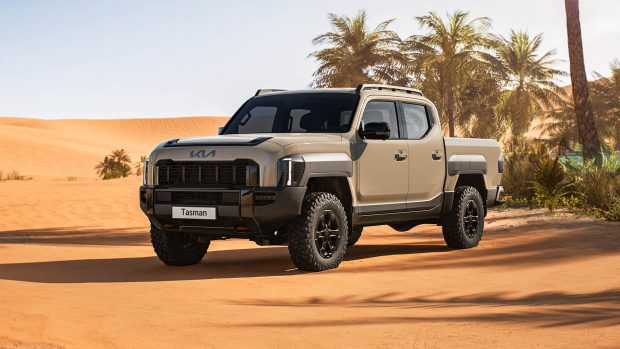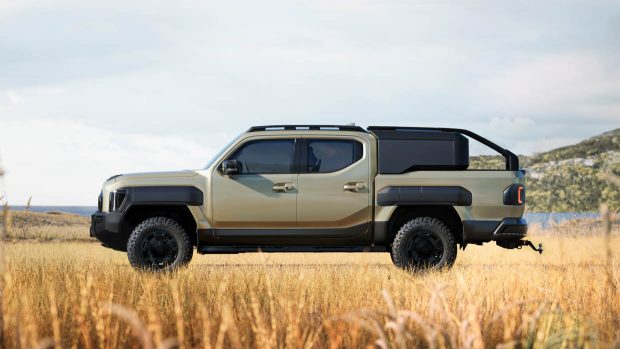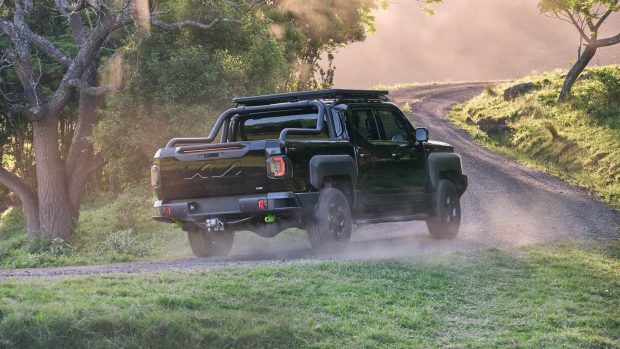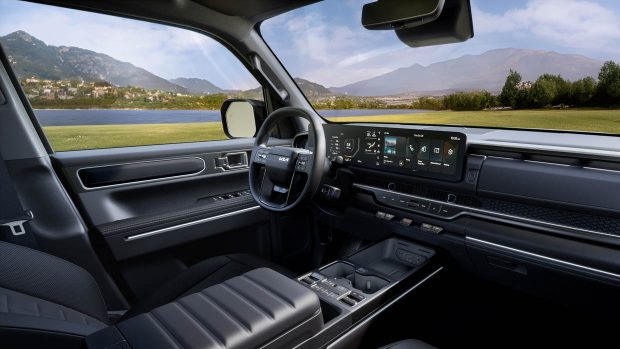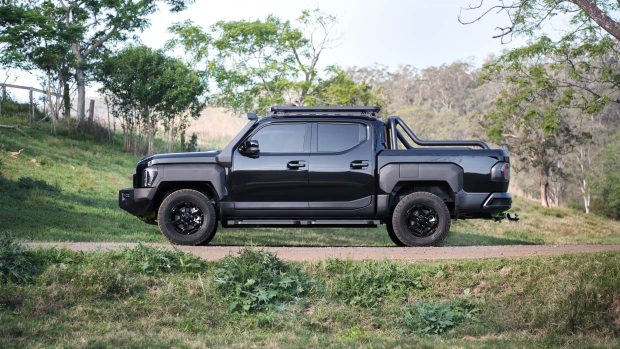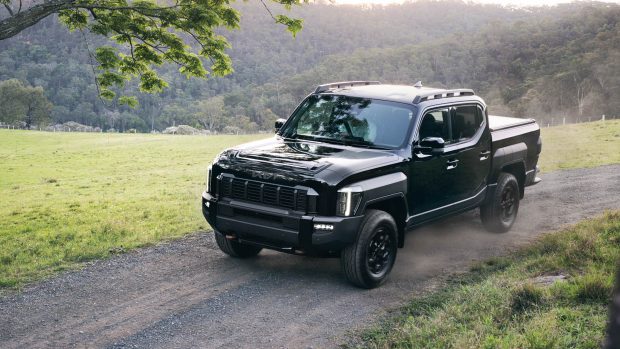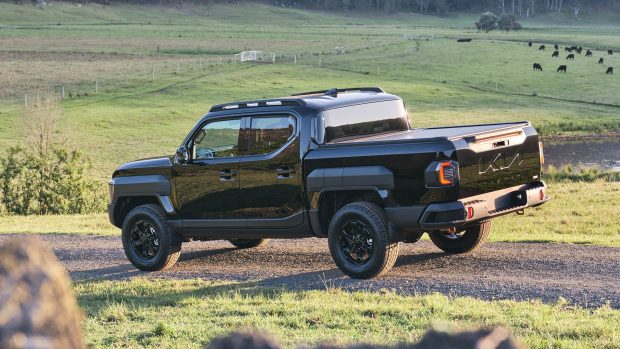-
Car Reviews
- All reviews
- Midsize SUVs
- Small cars
- Utes
- Small SUVs
- Large SUVs
- Large cars
- Sports SUVs
- Sports cars
- Vans
Latest reviews
- Car News
-
Car Comparisons
Latest comparisons
- Chasing Deals
Kia has deliberately delivered a bold and function-focused design as it aims to cut-through in a highly contested market
As one of the most highly-anticipated reveals of the year, the Kia Tasman hasn’t failed to capture the media and public’s attention. And it’s one key aspect that’s garnering the greatest focus is the way it looks.
A rugged, boxy and upright design has certainly drawn a polarised reaction across both the public and the media spheres – and also delivered Chasing Cars our most watched ever TikTok, below – but it seems that this is all part of a deliberate strategy to stand out against long-entrenched nameplates such as the Ford Ranger and Toyota Hilux.
Chasing Cars sat down with senior Kia executives and two lead designers following the ute’s launch last week to find out more.
“I think we knew from the onset that [the Tasman’s design] would garner a variety of opinions”, said Roland Rivero, Kia Australia’s general manager for product planning.
“We could have easily taken that approach of: let’s just be like everybody else. But [rivals such as Hilux have] 40 or 50 years of heritage and history in this category, so we needed to do something a little bit different and be a little bit more bold in our approach”.
John Buckingham, Head of Kia Next Design Exterior globally, builds on Rivero’s comments, saying that to break into an entrenched and well-established ute market couldn’t be done “with a cookie cutter approach”.
“It had to be something new,” Buckingham continued, saying that a “striking” initial impression “was the intention”.
So what inspired the look that eventuated?
Buckingham says the design is “reflecting the use case” of the Tasman, noting a clear focus on functionality.
He gives specific reference to the wheel arches, which also incorporate additional elements within them such as additional storage, fuel port access and also the front headlights.
“So, imagine everyday, if you bang into something, the functionality means you’re protecting these elements from the things around you.
“So it’s not an accident that these [wheel arches] are placed in these places, as it’s all part of this best practice for the best use case.”
Zeroing in on the fender flares more closely, Buckingham adds: “everyone loves fender flares, and I think here in Australia it’s got slightly more focus than the rest of the world”.
“I only realised on this trip how extreme the fender flare topic is,” he continues before describing the purpose behind their design.
“The reason why the fender flares exist like that is to elevate, right? So having a fender flare that goes around the wheel arch, it’s great, it’s fine, but it can sometimes draw the mass of the vehicle down.”
“So these fender flares are separated from that, to kind of lift it, give it an element of capability.”
“It’s got this high water line and it means [this design aspect] communicates this functionality, communicates this capability”, noting what Kia claims will be strong off-road capability from the Tasman.
“So these wheel arches do lift it above that kind of water line, and I think that’s part of the exercise – if we design a car, draw a car, it should look like what it can do. That’s the industrial design element of it.”
Jochen Paesen, the Head of Kia Next Design Interior for Kia globally, also zeroes in on the theme of “use-case” for the interior design too.
“It was really, really important from an interior design perspective, for example, how it’s used for work, for daily work, but it’s also used at the weekend to travel long distances as a family”.
“These kinds of use-cases and this kind of input helped us define what the car should do, and that’s also where you see it’s quite upright, the cabin, it gives a lot of space”.
“John always describes it as industrial design and we took that approach and that creates an aesthetic”, Paesen said.
So what did Kia make of the initial overnight reaction?
Paesen says: “in design often you get positive, negative [reactions]. You know, we all want positive reactions but the reality for us is that we’re not too worried about initial reactions”.
Buckingham adds that while there is a focus to be different, “we’re not searching for negativity and we’re not being contrarian.
“We really do want to make good looking cars for customers that appeal to them from a use case and a function point of view.
“As we see it on the roads and you start seeing it in context, you’ll start to understand the balance and the design intention”.
Despite the polarising online response, Rivero added that responses from dealers and fleet customers – who have been “closer to the journey from the beginning” and who saw initial clay models – have been “a little bit different in how they’ve responded to the product” compared with that at the global unveiling.
“[Dealers and fleet buyers are] excited and they can’t wait to drive it”, he continued, while also acknowledging that the bold design will “have its moment of gestation in the marketplace”.
Ultimately, however, it will come down to sales, which was perhaps best summed up by chief operating officer of Kia Australia, Dennis Piccoli: “Bums in seats is really what is going to be all about for us moving forward”.
Latest news
About Chasing cars
Chasing Cars reviews are 100% independent.
Because we are powered by Budget Direct Insurance, we don’t receive advertising or sales revenue from car manufacturers.
We’re truly independent – giving you Australia’s best car reviews.
